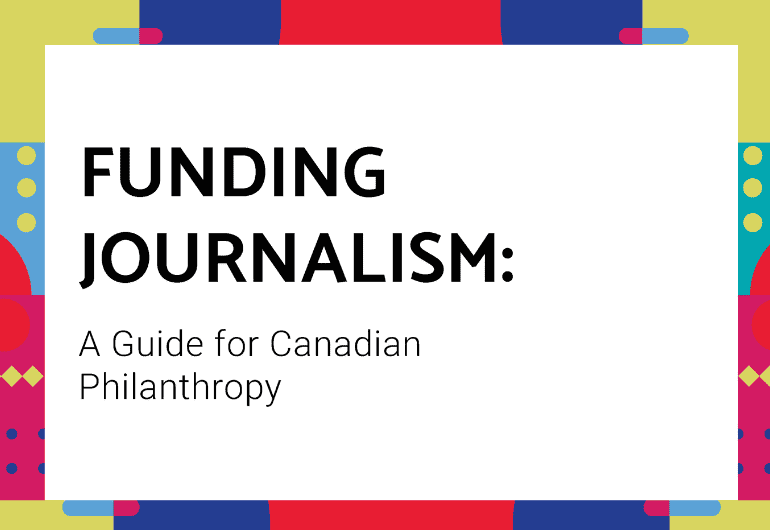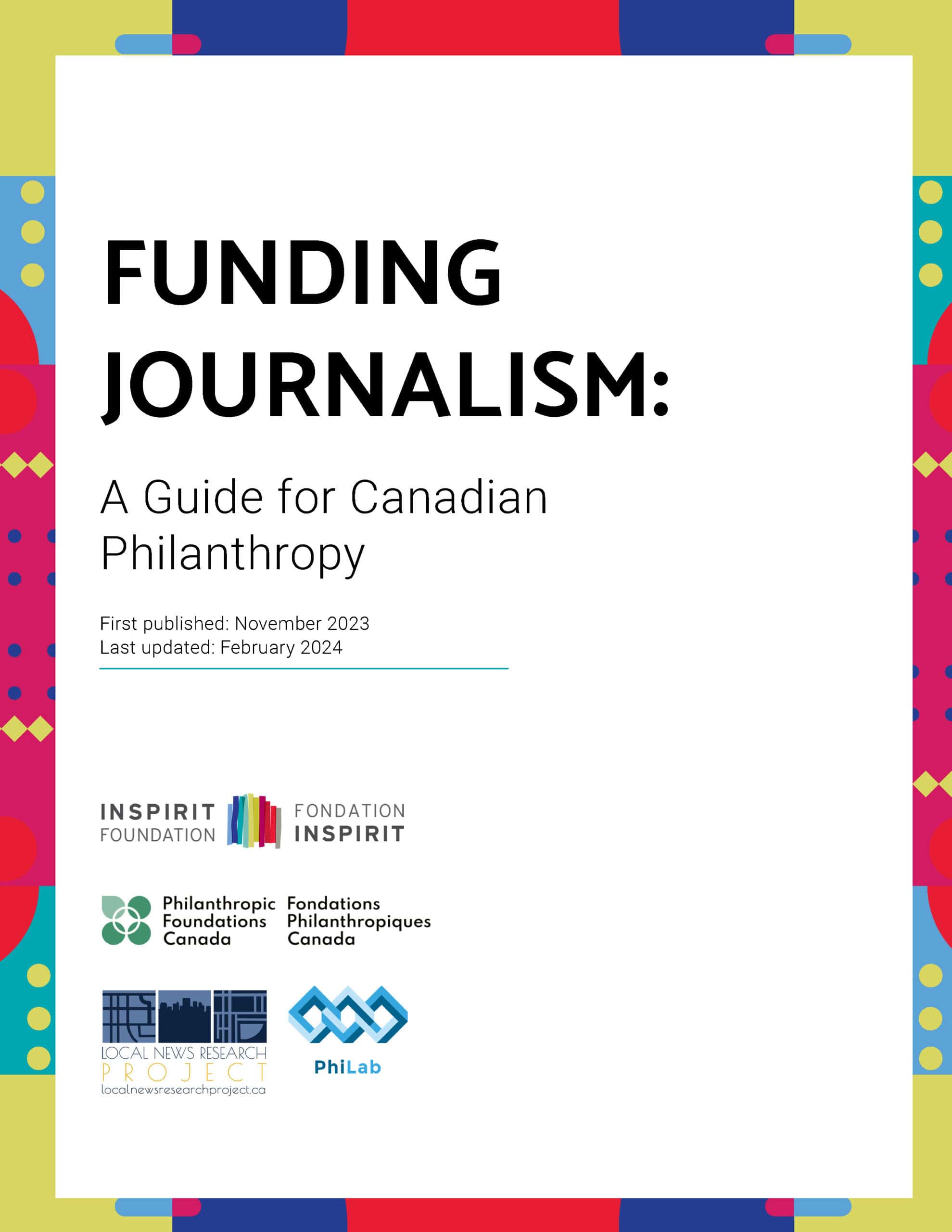
Funding Journalism: A Guide for Canadian Philanthropy
Quality journalism is a pillar of democracy. It provides trustworthy information and holds power to account.
Now more than ever, we know that media influences dominant narratives that drive public conversations and policies that affect our lives. At its best, independent journalism can give voice to underrepresented narratives and create a forum where people from diverse backgrounds can engage in informed and constructive dialogue across lines of difference.
While journalism’s contributions to a healthy society are widely recognized, funding journalism is still uncharted territory in Canadian philanthropy.
Funding Journalism: A Guide for Canadian Philanthropy contains practical information and tools for foundation staff and board members interested in funding journalism. It was created in collaboration with the Local News Research Project at Toronto Metropolitan University and Philanthropic Foundations Canada.
The guide is divided into four sections. The first section explores the rationale for funding journalism while the second looks at the nuts and bolts of how to go about it. The third section offers up a list of possible funding models for you to explore, and the fourth provides a roadmap for engaging in this field as a funder.
Funding Journalism: A Guide for Canadian Philanthropy is part of Inspirit Foundation’s ongoing effort to bridge the information gap between philanthropy and journalism in Canada.
Check out the first resource in our series, Funding Journalism, Strengthening Communities , a set of case studies highlighting philanthropic support for journalism across the country, published last spring.
Do you have questions or insights about philanthropic funding for journalism in Canada? Are you interested in collaborating? Please reach out to Program Manager Ana Sofía Hibon (ashibon@inspiritfoundation.org) and stay tuned for upcoming resources.
[This guide was updated in February 2024 to include the latest Canada Revenue Agency guidelines for registered charities making grants to non-qualified donees.]
